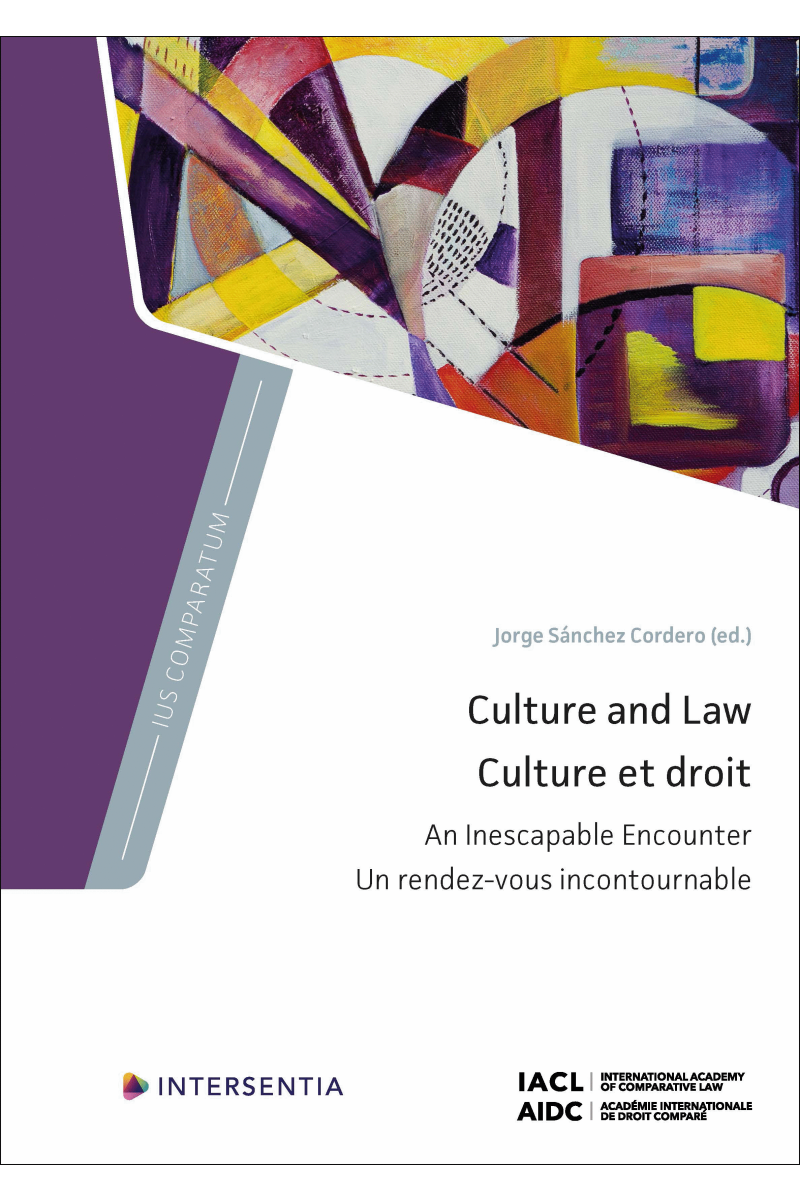 maestro
mastercard
visa
maestro
mastercard
visa

Culture and Law
An Inescapable Encounter

Research at the intersection between culture and law is intrinsically interdisciplinary, as was the case with academia that explored cultural processes. Law and the social sciences have always been reluctant to employ notions as ambiguous as culture.
Beyond the resulting controversy, which stems from conflicting conceptions of culture (or cultures) and civilization (or civilizations), it can be agreed upon that within every society exists a cultural life of greater or lesser wealth, or of more or less development, orientated towards one or even several different areas. The concept of culture is markedly expansive and includes values, beliefs, languages, knowledge, the arts, traditions, and institutions, as well as the way of life through which a person or group express the meanings given to their existence and development.
Many topics of the intertwinement of culture and law are represented and developed in this volume. These include:
- The interconnectedness of food, cultural heritage and how they are influenced by international law and how connecting food to indigenous people, demonstrates the biodiversity of people.
- The two faces of private art collectors are outlined in this volume; partnerships between public and private collections are encouraged, but responsible collaboration requires trust. Public access should be supported without of course encouraging looting.
- The idea that cultural exchange also promotes human rights is emphasized, and the role of legal trade and the compilation of legal collections are highlighted.
- The relation between copyright and traditional knowledge is subjected to a thorough analysis. The determination and transfer of ownership or better the relationship to cultural artifacts/collections is among others the key problems.
- The parallels between the protection of culture, on the one hand, and the protection of nature, on the other is also addressed. The link between the protection of culture and the protection of the environment is internationally recognized; however, the impact of climate change on culture was recognized very late, only in 2015 by the Paris Agreement, which, for the first time, explicitly referred to human rights. It becomes abundantly clear that climate change is a cultural problem, as outlined in this volume.
The theoretical exercise of capturing culture from legal perspectives results in several conclusions, one of which is that culture is a collective good which is subject to law. This collection brings this idea to the fore across its varied and engaging contributions, making an important intervention on the interaction between culture and law.
JORGE SÁNCHEZ CORDERO is a legal practitioner and public notary in Mexico City. He has represented the Government of Mexico in several diplomatic conferences and is a former judge of the Mexican Electoral Federal Court. He is Director of the Mexican Center of Uniform Law; Vice President of the Executive Committee of the International Association of Legal Science of UNESCO (IALS); Member of the Committee on Participation in Global Cultural Heritage Governance of the International Law Association (ILA); Member of the Governing Council and of the Permanent Committee of UNIDROIT; Member of the Board of Directors of the International Cultural Property Society (ICPS) and of the Board of Scholars at Risk; Member of the American Law Institute and Fellow of the European Law Institute; and Member and former Vice President of the International Academy of Comparative Law (IACL).
| Type of product | Book |
|---|---|
| Format | Hardback |
| EAN / ISSN | 9781839703263 / 9781839704062 |
| Series name | Ius Comparatum |
| Weight | 600 g |
| Status | Available |
| Number of pages | xii + 270 p. |
| Access to exercice | No |
| Publisher | Intersentia |
| Language | English |
| Publication Date | Jun 30, 2023 |
| Available on Jurisquare | No |
| Available on Strada Belgique | No |
| Available on Strada Europe | No |
| Available on Strada Luxembourg | No |
Downloads
- Table of Contents and Front Matter
Jorge Sánchez Cordero - Highlights of the Culture and Law Conference in Mexico
Katharina Boele-Woelki - Le Rendez-Vous Entre la Culture at le droit au mexique
Diego P. Fernández Arroyo - Forum Culture et Droit: une Rencontre Inévitable
- Culture and Family Law
Katharina Boele-Woelki - Droit D'auteur et Savoirs Traditionnels: Une impossible réconciliation?
- Savoirs Traditionnels et Protection de la Nature: Interaction avec le droit de l 'environnement
- Le Fantasme de la Censure: Arts visuels, littérature et musique
- The Public and the Private in Art Collections: Access by the General Public, Cultural Exchange, and Heritage Protection
- Food as Culture: Framing, Legal Harmonization, and Transnational Law as a Regulatory Gateway
Lucas Lixinski - Relations Between Law and Culture
- La Culture en Droit International Public: Une approche systémique
Makane Moïse Mbengue - The Two Faces of Collectors, Reconciled by Common Sense
- Changement Climatique et Culture
- Nature and Culture: The Scaffolding of Latin American Heritage
Jorge Sánchez Cordero - Aesthetic(s) of the Law: Room for Comparisons?
Alexandre Senegacnik - Culture and Human Rights in Times of Crisis
- Index
Jorge Sánchez Cordero